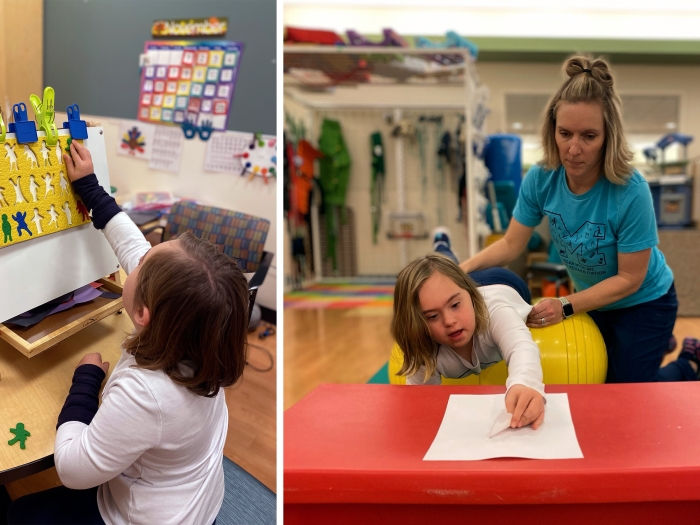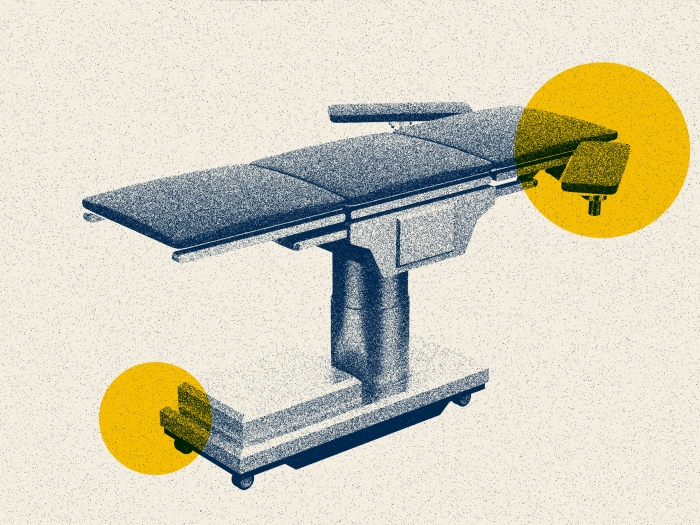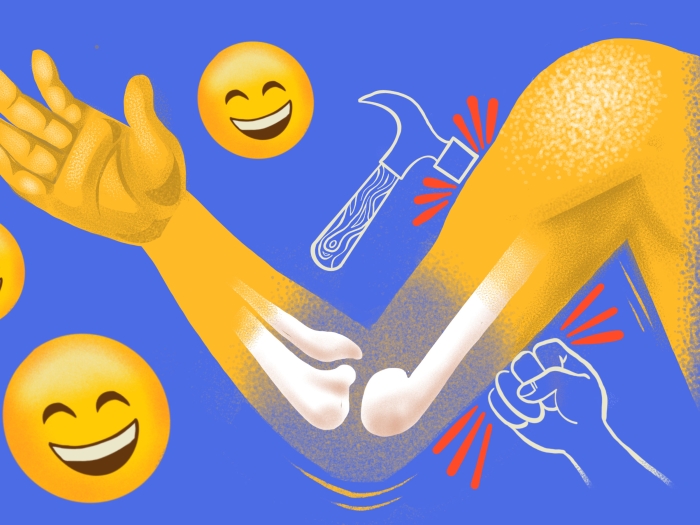Young or old. Male or female. Pro athlete or afternoon dog walker. Knee pain is one of the great equalizers that affect people of all ages and backgrounds. Walter Alomar-Jimenez, M.D., joins us to answer the top asked questions about knee pain.
- What causes knee pain?
- Should you rest, or exercise, to address knee pain?
- What exercises are best for knee pain?
- Should you get a knee brace for knee pain?
- When should you see a specialist about knee pain?
- What are the most common treatments for knee pain?
Not all knee pain is serious, but if it’s keeping you from doing all the things you want to do, you deserve to know what’s going on, and your options for treatment. Dr. Alomar gets us the answers on this episode of the Michigan Answers podcast.
More resources
- Visit Dr. Alomar’s profile
- Learn more about physical medicine and rehabilitation and knee pain services at University of Michigan Health.
Transcript
Dr. Preeti Malani:
Most of us put our knees through a lot each day. But how often do you really think about them? The answer is not too often, until pain or discomfort remind you just how much you use the largest joints in your body. Our focus today is knee pain. Knee pain is something that affects people of all ages and body types. And while it's not always easy to tell why you have knee pain, finding ways to manage knee pain starts with understanding the causes. Our guest today is Dr. Walter Alomar, a physical medicine and rehabilitation physician at University of Michigan Health. Not all knee pain is serious, but if it's keeping you from doing all the things you want to do, you deserve to know what's going on and your options for treatment. I'm Dr. Preeti Malani, and thank you for joining us on the Michigan Answers podcast. Hi Dr. Alomar, thanks for joining us today.
Dr. Walter Alomar:
Hi Dr. Malani, my pleasure to be here today.
Dr. Preeti Malani:
So, we've got a routine here on the show. I know you're familiar with how it works. We've identified some of the most asked questions about knee pain on popular search engines, and we're hoping you'll set us up with some answers. Let's get right down to it. Question one, what are some of the most common causes of knee pain?
Dr. Walter Alomar:
So some of the most common causes of knee pain, it depends on patient age group. Typically, knee arthritis secondary to degenerative changes might be one of the most common causes of knee pain. We also see a lot of patellar tendinopathy or what people call patellar tendinitis. And in some patient you might see also ACL tears, meniscal tears, and IT band syndrome as well. All of those are common causes of knee pain.
Dr. Preeti Malani:
Next question. What should you do about knee pain? Rest, exercise?
Dr. Walter Alomar:
That's a very, very good question. So in general, what we recommend is activity modification, sort of if it hurts too much, don't do it. However, you don't want to restrict a patient from doing their daily activities, unless it's too much painful. We know exercise is medicine, so patients should stay as active as possible.
Dr. Preeti Malani:
So a follow-up question, what types of exercises are best for knee pain?
Dr. Walter Alomar:
The best exercise for knee pain are knee extension exercise. That being said, knee extension exercise for strengthening of quadriceps muscle, or thigh muscles. Those are the most common exercise and most helpful for knee pain.
Dr. Preeti Malani:
We saw lot of questions online about knee braces. Can a knee brace help someone struggling with knee pain?
Dr. Walter Alomar:
It can, yes. Especially when you use a knee brace, it's going to unload or offload that pressure that we place on our knees, so it can reduce the knee pain. However, we do not recommend prolong or like too much sustained knee brace, because at the end, what is going to happen, it's going to weaken your own muscle. So you can use a knee brace. We recommend it to offload. However, we should not be dependent on the knee brace.
Dr. Preeti Malani:
How do we know if knee pain is serious? When is it time to see a healthcare professional about the pain?
Dr. Walter Alomar:
It will depend on the patient. Definitely, something important to remember is if that knee pain happen suddenly or chronic, in let's say a patient who suddenly felt a pop or a traumatic injury, that can be serious, and which, for example, an ACL tear, the predominant treatment for that is surgery. So if it's something traumatic or acute, it should immediately see a specialist. If it's something more chronic that has been there for weeks, month, even years, so if you want to improve your quality of life and you should see a specialist because there are many interventions that we are able to provide.
Dr. Preeti Malani:
That's a great transition to our next question. What are some of the most common treatments a specialist might recommend for knee pain?
Dr. Walter Alomar:
So we do a thorough evaluation, which consist of a detailed history, physical exam, and most likely will involve some imaging, which might be an x-ray, an MRI. And then we'll make a individualized plan of care. Some of the most common treatments will be physical therapy, dedicated physical therapy, balance exercises, some medications like Tylenol or NSAIDs, Voltaren gel is also used. And I will say that will be the initial or first tier of treatment for knee pain. If a patient is not responding to that or still not to the point where he feels good or okay, the next, there might be something like injections. So we are able to provide ultrasound guided injection, which may consist of steroid, hyaluronic acid injection or something in the category or orthobiologics or regenerative medicine.
Dr. Preeti Malani:
Okay. This is the part where I sometimes squeeze in an extra question because that's one of the perks of being the host. I'm curious, what's an area of research around treatment of knee pain that you're particularly excited about?
Dr. Walter Alomar:
I am particularly excited about orthobiologics, which means that we are nowadays doing platelet-rich plasma injection for knee, for knee joint. That's basically a procedure which we take blood from the patient, we'd spin in a machine, and then we create this platelet concentrate. And we know that that has healing factors, growing factors. And most importantly, it's very safe because it's the patient's own blood. And it's a simple injection that might provide good long-term relief rather than cortisone corticosteroid, which we know it may help up to two months. If the PRP help, it might be more sustained or prolonged relief.
Dr. Preeti Malani:
That sounds really promising. I know many people are hopeful for what that might mean for individuals who experience knee pain. Dr. Alomar, thank you for sharing your time and expertise with us today. And thank you to our listeners for tuning into this week's episode of Michigan Answers. If you enjoyed today's episode, please subscribe wherever you get your podcasts. This season, we're unpacking some of the most searched for health topics on the internet. If you enjoyed today's episode, please subscribe wherever you get your podcasts. And if you're interested in learning more about how Michigan Medicine is improving lives and advancing health, you can visit us at michigananswers.com. See you next week.

Listen to more Michigan Answers podcasts - a part of the Michigan Medicine Podcast Network.





